What is THCA? Benefits, Side Effects, and Legal Aspects
THCA, or tetrahydrocannabinolic acid, is a non-psychoactive compound in raw cannabis. Unlike THC, it doesn’t get you high unless it’s heated. This article will explain what is THCA, explore its potential benefits, side effects, and its legal status.
Key Takeaways
- THCA is a non-psychoactive compound in raw cannabis that offers potential health benefits without inducing a high, making it appealing for therapeutic use.
- Key benefits of THCA include anti-inflammatory properties, neuroprotection, and the ability to alleviate nausea and regulate appetite, especially for patients undergoing treatments like chemotherapy.
- The legal status of THCA varies significantly by state and can be complicated due to its potential to convert to THC, emphasizing the need for consumers to understand local regulations and product safety.
Understanding Tetrahydrocannabinolic Acid (THCA)
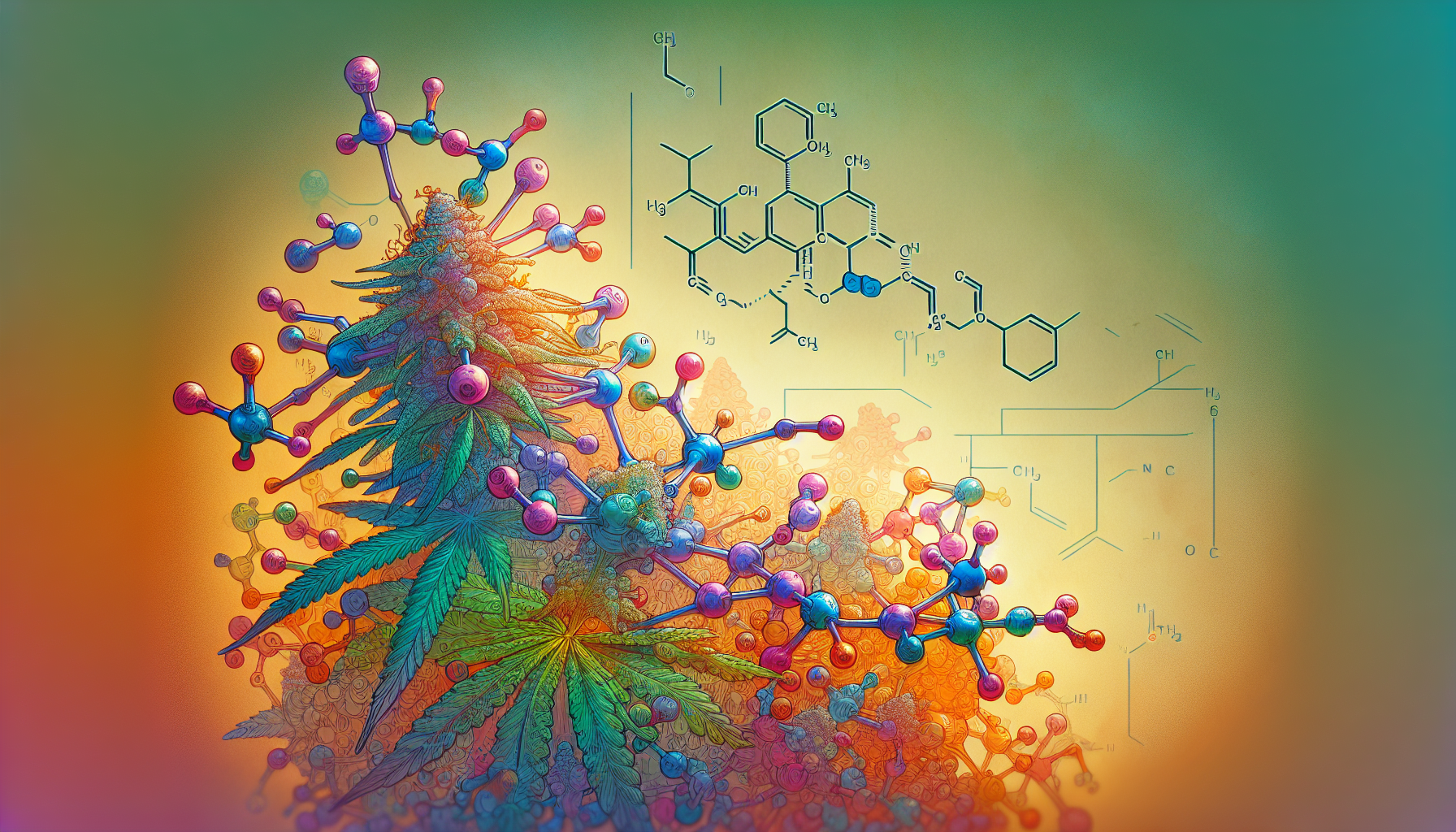
THCA, or tetrahydrocannabinolic acid, is a compound found in raw cannabis plants. Unlike THC, THCA does not induce psychoactive effects, meaning it won’t lead to the ‘high’ commonly linked with consuming the cannabis plant. This is because THCA binds less effectively to brain cannabinoid receptors, which are responsible for the psychoactive effects of THC. Instead, THCA remains in its non-psychoactive form unless it undergoes a process called decarboxylation, where heat converts THCA to THC.
In its raw form, THCA offers potential health benefits without the psychoactive effects of THC. Research suggests that unconverted THCA may provide various therapeutic properties, making it an attractive option for those seeking the benefits of cannabis without the high. It is important to consult a healthcare provider before incorporating THCA into your routine, especially if you are taking prescription medications, as there may be potential interactions.
Definition and Origin
THCA, or tetrahydrocannabinolic acid, is a non-psychoactive cannabinoid found in raw cannabis buds. It serves as the precursor to THC, the primary psychoactive compound in cannabis. Abundant in cannabis plants, THCA is gaining popularity in dispensaries, especially with the advent of new legal methods to concentrate it using hemp. THCA, unlike THC, does not induce a high, making it a preferred choice for those looking to experience the therapeutic benefits of cannabis without its psychoactive effects. This distinction is crucial for consumers who want to incorporate cannabis into their wellness routines without experiencing intoxication.
Chemical Composition of THCA
THCA’s chemical composition is what sets it apart from THC. The presence of an extra carboxylic acid group in THCA distinguishes it from its psychoactive counterpart. This carboxyl group is the key reason why THCA does not produce intoxicating effects; it prevents the compound from binding effectively to cannabinoid receptors in the brain.
When THCA undergoes decarboxylation, it loses this carboxyl group and is converted into THC, enabling it to produce psychoactive effects. Understanding this chemical transformation is crucial for consumers who wish to use THCA for its non-psychoactive benefits or convert it to THC for different uses.
How THCA Interacts with the Body
THCA interacts with the body’s endocannabinoid system, a complex network of receptors and enzymes that play a role in maintaining physiological balance. Due to its molecular structure, THCA does not bind as readily to cannabinoid receptors, which prevents it from producing psychoactive effects like THC.
Despite this, THCA’s interaction with the endocannabinoid system can offer various health benefits. For instance, it has been shown to relieve physical discomfort and exhibit anti-inflammatory properties by inhibiting COX1 and COX2 enzymes. This makes THCA a promising compound for those seeking therapeutic effects without the high.
Potential Health Benefits of THCA
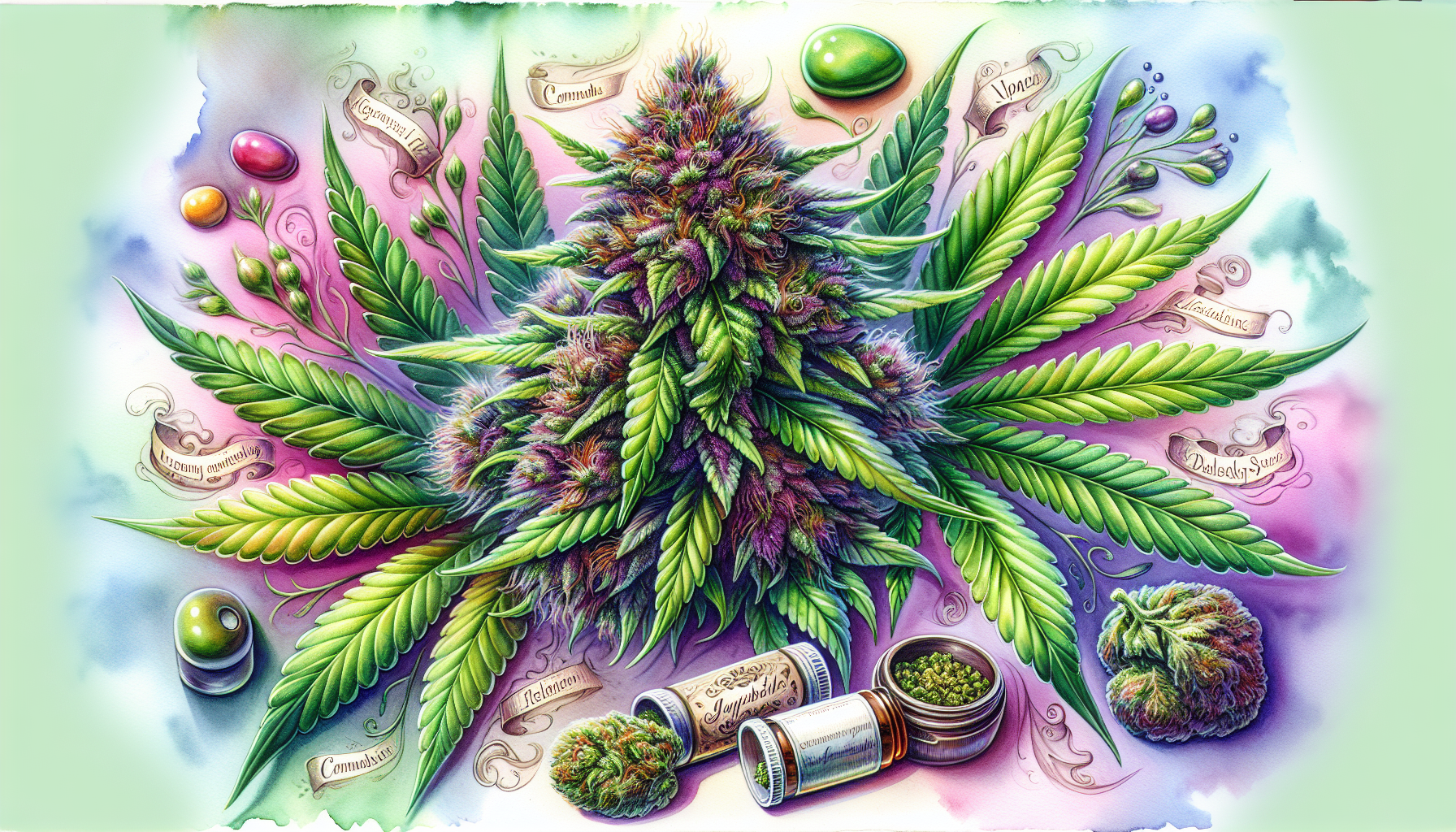
The potential health benefits of THCA are drawing increasing interest from both researchers and consumers. As a non-psychoactive compound found in raw cannabis, THCA is recognized for its therapeutic potential. Ongoing research continues to uncover its various benefits, suggesting that THCA could play a significant role in medical cannabis products. THCA is also available as a raw food supplement, which can be consumed in capsule form to harness its therapeutic properties without the psychoactive high associated with THC.
Dispensaries are beginning to offer more THCA products, driven by its medicinal properties. From reducing inflammation and alleviating pain to potentially inhibiting cancer cell growth and providing anticonvulsant effects, THCA is becoming a valuable addition to the wellness routines of cannabis consumers, including those interested in psychoactive thc.
Anti-Inflammatory Properties
One of the most notable benefits of THCA is its anti-inflammatory properties. As a non-psychoactive compound, THCA offers therapeutic effects without the high associated with THC. Research indicates that THCA exhibits significant anti-inflammatory activity, making it a potential treatment for managing chronic inflammation and related conditions.
These anti-inflammatory properties are particularly beneficial for individuals suffering from chronic inflammatory diseases, providing relief without the intoxicating effects of THC. This positions THCA as a promising alternative for those seeking non-psychoactive treatment options.
Neuroprotective Properties
THCA also shows promise in protecting nerve cells from damage, a property that could be highly beneficial for those with neurodegenerative diseases. Animal studies have demonstrated that THCA may help protect nervous system cells, offering potential therapeutic effects for conditions like Alzheimer’s disease and Parkinson’s disease.
These neuroprotective properties highlight the potential of THCA as a treatment for neurodegenerative conditions, providing hope for patients and their families seeking new therapeutic options.
Anticonvulsant Properties
Research suggests that THCA may possess anticonvulsant properties, offering potential benefits for individuals suffering from seizures. A study published in the National Library of Medicine found that THCA exhibits potent anticonvulsant activity. This effect is likely due to THCA’s interaction with the endocannabinoid system, which plays a significant role in regulating seizure activity. While these findings are promising, further research is necessary to fully understand the extent of THCA’s anticonvulsant benefits and its potential applications in treating seizure disorders.
Nausea and Appetite Regulation
THCA can also play a role in alleviating nausea and regulating appetite, making it particularly beneficial for patients undergoing chemotherapy. Studies suggest that THCA may be more effective than THC in reducing nausea for these patients.
Incorporating raw cannabis leaves into your diet, such as blending them into smoothies or adding them to salads, provides a natural way to consume THCA and enjoy its benefits. However, it is essential to use untreated cannabis leaves to ensure safety and maximize the therapeutic effects.
Forms and Consumption Methods of THCA
THCA can be consumed through various methods, each offering unique benefits and drawbacks. The best method for consumption will depend on individual preferences and therapeutic needs. From inhalation and edibles to tinctures and topicals, there are multiple ways to incorporate THCA into your wellness routine.
Consumption Methods of THCA
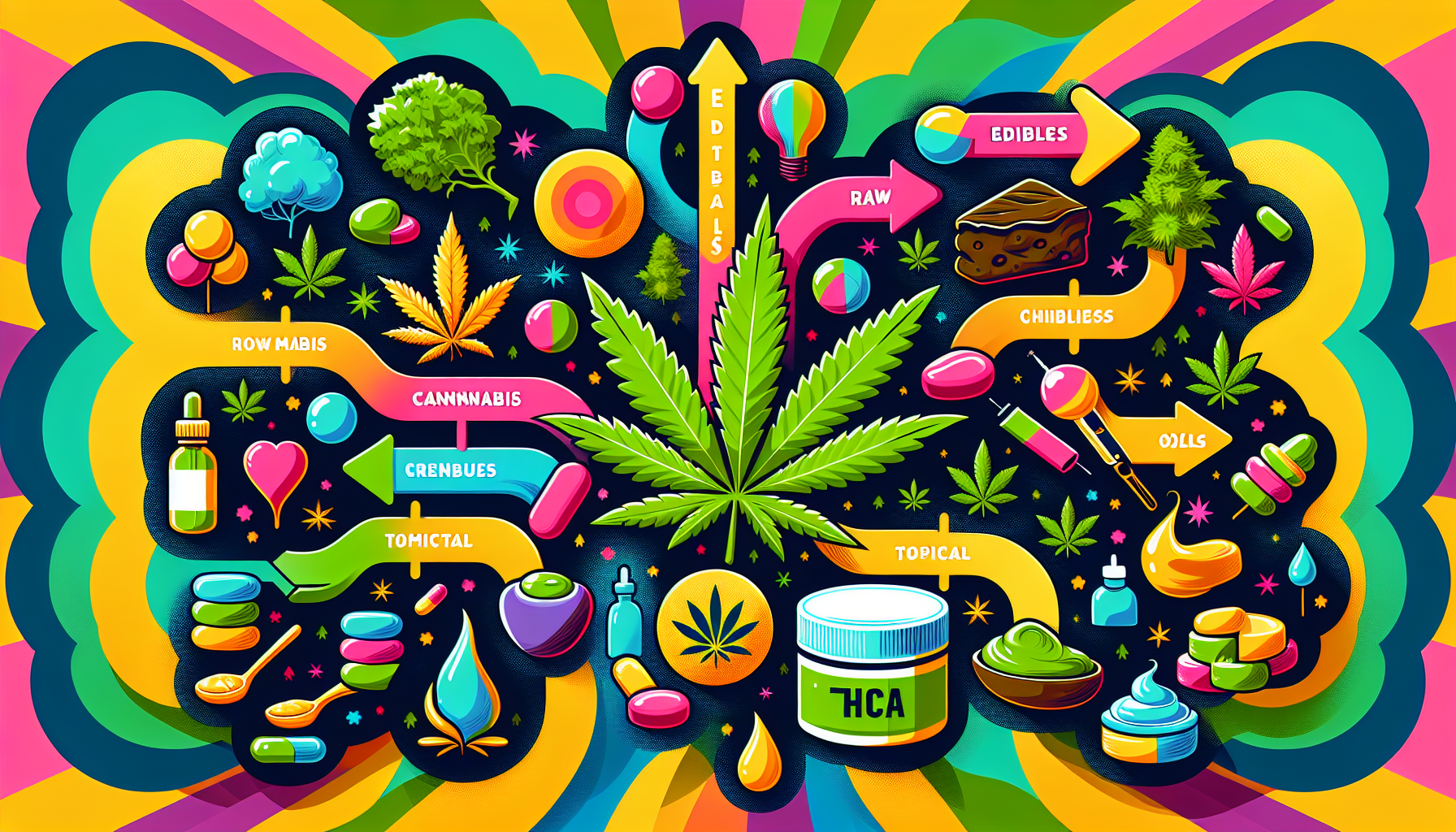
THCA can be consumed in various forms, each offering unique benefits and effectiveness. From raw cannabis and edibles to topicals and tinctures, there are multiple ways to incorporate THCA into your wellness routine. Each method provides different onset times and durations of effects, catering to individual preferences and needs.
Whether you prefer the rapid onset of inhalation or the prolonged effects of edibles, there is a THCA consumption method to suit your lifestyle and therapeutic goals.
Raw Cannabis Buds Consumption
Consuming raw cannabis is one of the most straightforward ways to intake THCA without converting it to THC. Raw cannabis plants contain high levels of THCA, which can be preserved by consuming the plant material in its natural state. This method allows consumers to benefit from THCA’s therapeutic properties without the psychoactive effects of THC.
Incorporating raw cannabis buds or leaves into your diet, such as in smoothies or salads, is a simple yet effective way to enjoy the benefits of THCA. This approach ensures that the THCA remains intact and provides its full range of health benefits.
THCA Edibles
THCA edibles, such as THCA-infused chocolates, caramels, and gummy candies, offer a delicious and convenient way to consume this beneficial compound. Edibles provide a slower onset of effects compared to inhalation but offer a longer-lasting experience.
For new users, it’s advisable to start with a low dose and gradually increase to avoid an overly potent experience. Since edibles enter the body through the digestive system, they provide a steady release of THCA, making them ideal for sustainable therapeutic use.
THCA Patches
THCA patches are a type of transdermal patch applied directly to the skin, providing a discreet and convenient way to consume THCA. These patches offer a longer-lasting experience compared to inhalation, delivering a steady dose of THCA into the bloodstream over an extended period. This method is particularly beneficial for individuals managing chronic pain or inflammation, as it ensures a consistent therapeutic effect without the need for frequent dosing.
THCA Diamond Crystals
THCA diamond crystals are a highly concentrated form of THCA that can be dabbed or vaporized. Known for their purity, these crystals offer a more potent experience than other consumption methods. When consumed, THCA diamond crystals can produce psychoactive effects, including euphoria and relaxation, due to the conversion of THCA to THC during the heating process. However, it is important to be mindful of the potential health risks associated with high-potency THC, such as negative impacts on lung health and an increased risk of mental health conditions like depression and anxiety. Consulting with a healthcare professional before using any cannabis products, especially those with high-potency THC, is crucial. Additionally, ensuring that cannabis products are sourced from reputable providers and tested for potency and purity can help mitigate potential risks.
Topical Applications
THCA topical applications, including creams, balms, and lotions, offer targeted relief without any psychoactive effects. These products are applied directly to the skin, targeting specific areas of discomfort and offering therapeutic benefits like pain relief and moisturization.
However, some users might experience skin issues like itching and rashes when using THCA topicals, so it’s important to test a small area first to ensure compatibility.
Decarboxylation: Converting THCA to Psychoactive Effects of THC
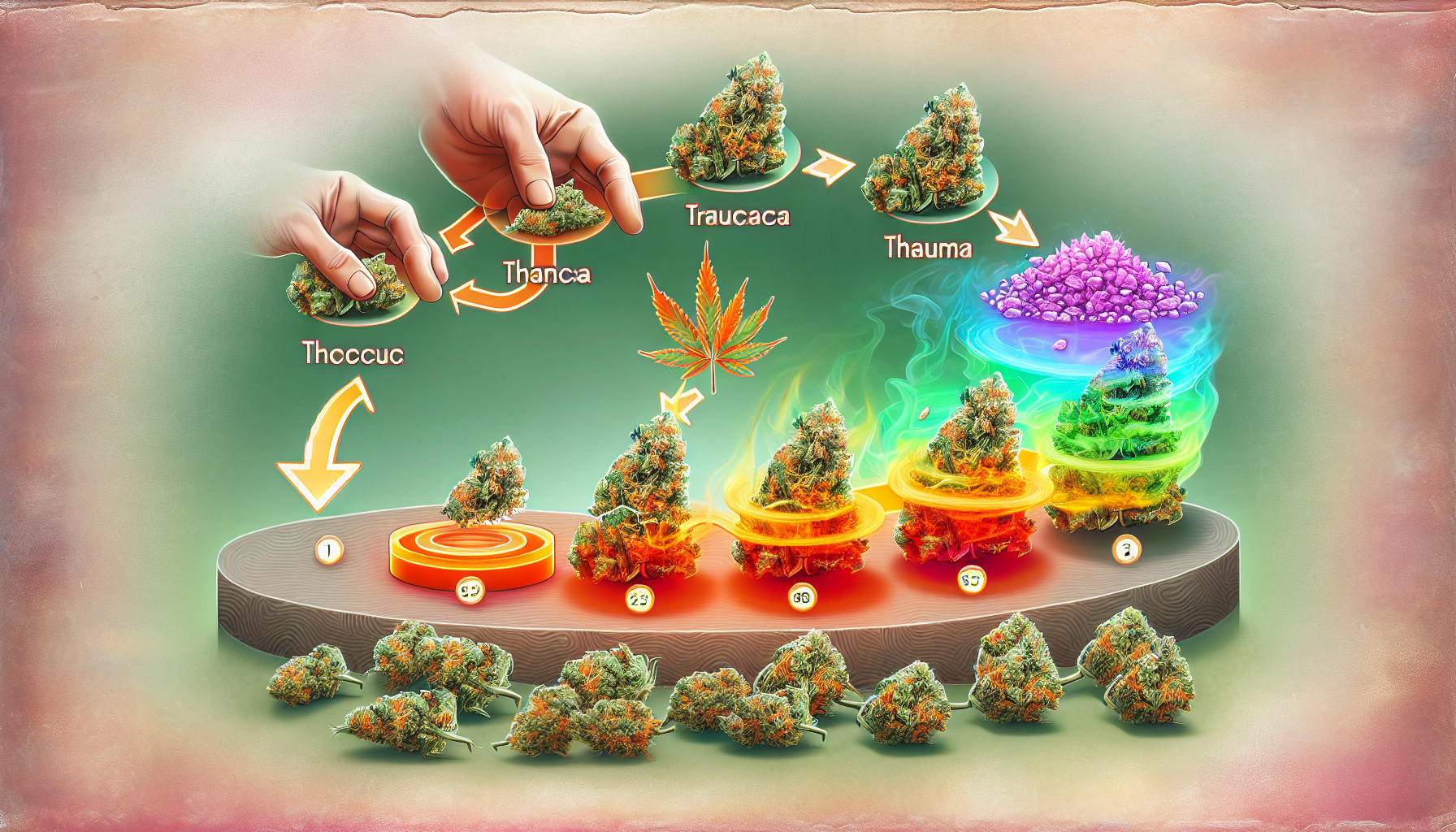
Decarboxylation is the chemical process that converts THCA into THC, making it psychoactive. When THCA is heated, it loses a carboxyl group and transforms into THC, enabling it to produce psychoactive effects. This process is essential for those who prefer the psychoactive properties of cannabis products.
Decarboxylation can be achieved through various methods, including smoking, vaping, baking, and cooking, each offering different benefits and applications.
Smoking and Vaping
Smoking and vaping are common methods for converting THCA to THC. When cannabis is heated during smoking THC, THCA rapidly converts to THC, leading to immediate psychoactive effects. Vaporization is another effective method that allows for the quick transformation of THCA into THC while inhaling.
Vaping offers convenience and discretion, producing vapor instead of smoke, which can be seen as a healthier alternative for lung health. However, both methods introduce THC into the system, resulting in the characteristic high.
Baking and Cooking
Baking and cooking cannabis are popular methods for converting THCA to THC, especially for creating edibles. Specific temperatures between 220-245°F are optimal for this conversion process, ensuring that the THCA is effectively transformed into THC. This temperature sensitivity is crucial for maximizing the psychoactive effects of THC in edibles.
Proper cooking techniques allow cannabis consumers to create a variety of infused dishes, from baked goods to savory meals, enhancing their culinary experience while enjoying the benefits of THC. This method provides a controlled and enjoyable way to consume THC, making it accessible for both recreational and medicinal users.
Legal Status of THCA

The legal status of THCA is a complex and evolving issue. Federally, THCA is permissible under the 2018 Farm Bill if delta-9 THC levels are below 0.3% by dry weight. However, THCA can be illegal due to its potential to convert into THC, creating a legal gray area. Local marijuana laws further influence the legality of THCA, with significant variations across different jurisdictions.
In areas where marijuana is legal for medical or recreational use, THCA is generally considered thca legal. However, inconsistent potency and unreliable labeling of THCA products can pose challenges for consumers. Unregulated products also pose risks of contamination due to harmful chemicals, highlighting the need for proper regulation.
Federal Regulations
Under federal law, THCA is not classified as a controlled substance, unlike delta-9 THC, which creates a legal loophole for its use. Since raw THCA is non-psychoactive, it exists in a legal gray area, complicated further by state-specific regulations that may impose stricter limits on THC. THCA is not as strictly regulated compared to Delta 9, but its legal status varies significantly by state.
Despite this, possessing THCA could lead to prosecution under the Federal Analogue Act, which considers analogues of controlled substances illegal if intended for human consumption. This underscores the importance of understanding both federal and state regulations when using THCA.
State-by-State Variations
The legality of THCA varies significantly across the United States, affecting its availability and consumption methods. States like California and Texas allow THCA products as long as they meet federal delta-9 THC limits. Nevertheless, states like Idaho and Louisiana deem THCA illegal due to more stringent regulations on the total THC content.
These variations mean that cannabis consumers must navigate a patchwork of laws, with legal implications depending on state-specific regulations and the source of THCA (hemp versus cannabis). This complexity requires consumers to stay informed about the legal status in their respective states to avoid potential legal issues.
Side Effects and Risks of THCA
While THCA offers numerous potential health benefits, it is essential to be aware of possible side effects and risks. The metabolism of THC in edibles differs from inhalation, leading to unexpected effects after consuming THCA edibles. Additionally, smoking THCA introduces psychoactive components similar to those found in THC.
Understanding these risks and being cautious with unregulated THCA products can help mitigate adverse effects and ensure a safer consumption experience. While THCA itself does not produce psychoactive effects, it can still show up on a drug test due to its conversion to THC, posing potential risks for those subject to drug testing.
Possible Adverse Effects
Consuming THCA can lead to several side effects, including dizziness, nausea, changes in appetite, red eyes, and dry mouth. Some consumers might also experience changes in heart rate, increased anxiety, and respiratory symptoms, especially when smoking or vaping THCA.
When consumed raw, THCA may cause nausea, indigestion, and allergic reactions in some individuals. Recognizing these potential adverse effects is crucial for consumers to make informed decisions about their THCA use.
Risks of Unregulated THCA Products
Unregulated THCA products pose significant risks due to varying regulations at the federal and state levels. Federal regulations can create confusion around the legality and safety of products claiming to contain THCA. State-by-state variations can lead to inconsistent product regulation and quality assurance.
Unregulated THCA products may contain contaminants that pose health risks. The absence of standardization in manufacturing can result in inconsistent potency, leading to unpredictable effects. Ensuring product quality through regulation is crucial for consumer safety, reducing the potential risks associated with unregulated THCA products.
Summary
To sum up, THCA is an intriguing compound present in raw cannabis that provides numerous potential health benefits without the psychoactive effects associated with THC. Understanding its chemical composition, how it interacts with the body, and the various consumption methods can help you make informed decisions about incorporating THCA into your wellness routine.
While the legal status of THCA is complex and varies by state, staying informed about current regulations can ensure you use THCA responsibly. As research continues, THCA’s therapeutic potential becomes more evident, promising new avenues for medical cannabis applications. Explore THCA with care, and enjoy its benefits while navigating its legal landscape.
Frequently Asked Questions
What is THCA?
THCA, or tetrahydrocannabinolic acid, is a non-psychoactive compound in raw cannabis that may provide health benefits without inducing a high. This makes it a valuable option for those seeking therapeutic effects without intoxication.
How does THCA differ from THC?
THCA differs from THC in that it is non-psychoactive, as it binds less effectively to cannabinoid receptors in the brain. It requires decarboxylation to convert into the psychoactive form, THC.
What are the potential health benefits of THCA?
THCA offers potential health benefits such as reducing inflammation, protecting nerve cells, alleviating nausea, and regulating appetite. It may be beneficial for chronic inflammation, neurodegenerative diseases, and nausea related to chemotherapy.
What are the legal considerations surrounding THCA?
THCA is legally permissible at the federal level as long as delta-9 THC levels remain below 0.3% by dry weight, but its legality can differ by state, with some states prohibiting it based on its potential conversion to THC. It is crucial to check state-specific regulations to ensure compliance.
What are the risks associated with unregulated THCA products?
Unregulated THCA products carry significant risks, including potential contamination and inconsistent potency, which can lead to adverse health effects. It’s essential to ensure that such products are sourced from reputable providers that adhere to safety standards.



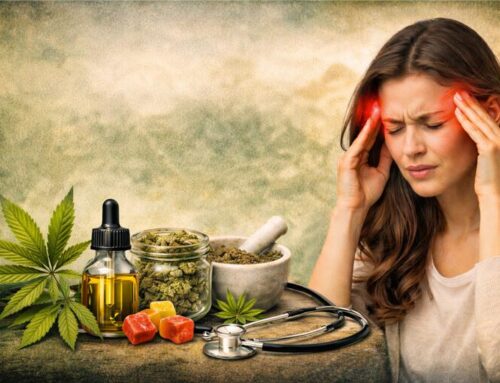
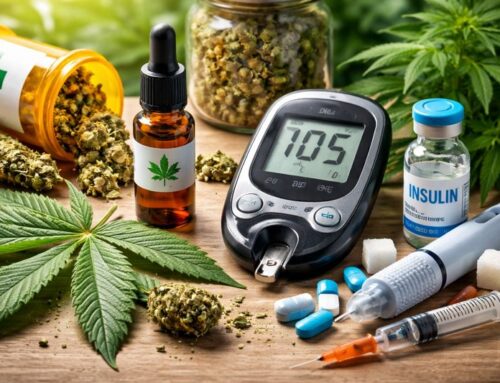

Leave A Comment
You must be logged in to post a comment.